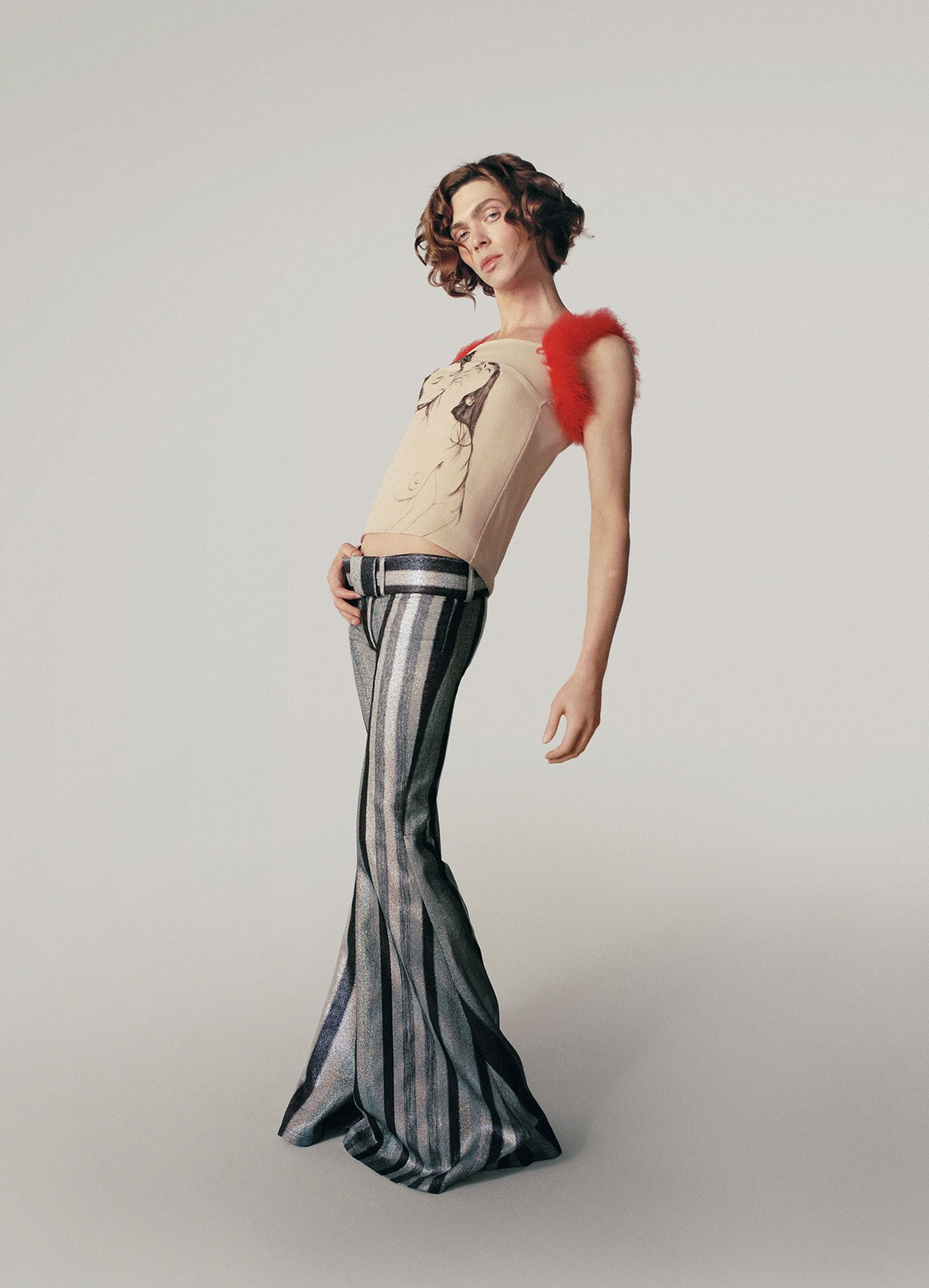Musically and philosophically, SOPHIE’s brand of pop is strikingly similar, in that she’s pushing it into the mind- boggling, ultra-saccharine, once-distant future that NSYNC advertised. She never set out to make a pretentious art-school statement, only to utilize the genre’s universality to inject her twisted musical creations into the public consciousness and see what sticks. “Basically, the most fun I can have is being with a synthesizer with my brother, smoke some weed and literally just go deep into sound.” She seems to light up when describing the wonderment of sonic exploration.
“We’ll just sit there designing little music instruments, essentially. And we’ll just listen. We’ll just use our ears and be like, whoa, that’s making me feel something new. What happens if we do this now? Or, let’s try to make this more clicky. It’s like if you’re with your best friend, and there’s a bunch of clay there in the middle. And you’re like, oh, imagine if we twist it a bit here, imagine if we put this edge on it, imagine if we colored it this color. It’s not related to the real world, you know? You’re just using your ears, and the sounds are directly speaking to your emotions.”
On Oil of Every Pearl’s Un-Insides she shares this intimate, corporeal experience with us, navigating surreal, often hard-hitting soundscapes like some sort of industrial imp. Contrasting frenetic bass lines with a schoolgirlish vocal, SOPHIE dips her toes in waters not often touched by her contemporaries on “Faceshopping”, an ear-blast of a song that questions identity in the Instagram age. “Immaterial” is the high-frequency anthem that meets somewhere between Blues Clues sing-along and a Red Bull-fueled underground UK voguing house. An obvious nod to Madonna’s “Material Girl”, the track is an album highlight that bounces around with a pointed pep in its step, calling listeners to chant along: “I can be anything I want / Anyhow, anywhere, any place, anyone that I want!” On “Is It Cold In The Water?”, SOPHIE overwhelms you with a grand synth buildup that never quite drops—but the exaggerated sounds make you feel that perhaps they represent those deep, swirling thoughts in SOPHIE’s brain, ones that gain traction with each new idea and that finally come to the forefront when she’s behind the studio deck.
I ask her how she first got into music production. “Basically, something unfortunate and traumatic happened to me when I was young,” she remembers, candidly yet cautiously. “Then my dad played me a rave tape and I was like, that’s what I wanna do. I filtered a lot of my energy into music to process stuff, and to have a place where I could be alone with my thoughts—whether that’s anger, disappointment...” In listening to her body of work, this energy can be felt, but sometimes hard to pinpoint—does it come from a happy place? Sad? Hopeful?
“Confused,” she tells me. “The main feeling for me is just being overwhelmed at the ridiculousness and complexity of the world we live in and how difficult it is to comprehend.
